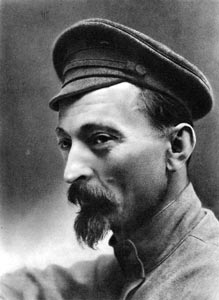FBI Needs To Grow A Pair
At a Secret CIA Interrogation, Dispute Flared Over Tactics
Washington - Abu Zubaydah, the first Osama bin Laden henchman captured by the United States after the terrorist attacks of Sept. 11, 2001, was bloodied and feverish when a C.I.A. security team delivered him to a secret safe house in Thailand for interrogation in the early spring of 2002. Bullet fragments had ripped through his abdomen and groin during a firefight in Pakistan several days earlier when he had been captured.Well boo-hoo-hoo... what SHOULD these terrorists expect from George Bush's Murrka™, if not torture? Evidence, accusations, trials, lawyers, judges, all of it completely unnecessary under a Unitary Executive willing to exercise his power. Once The Pary has declared you an enemy combatant, you've lost all rights you might have had as a human being. Anything can and should be done to you at that point. Remember this, the next time you vote. We have to torture them over there so they don't follow us home and torture us here!
President Bush pointedly cited the capture and interrogation of Mr. Zubaydah in his speech last Wednesday announcing the transfer of Mr. Zubaydah and 13 others to the American detention center in Guantánamo Bay, Cuba. And he used it to call for ratification of the tough techniques employed in the questioning.
But rather than the smooth process depicted by Mr. Bush, interviews with nearly a dozen current and former law enforcement and intelligence officials briefed on the process show, the interrogation of Mr. Zubaydah was fraught with sharp disputes, debates about the legality and utility of harsh interrogation methods, and a rupture between the Federal Bureau of Investigation and the C.I.A. that has yet to heal.
By all accounts, Mr. Zubaydah's condition was rapidly deteriorating when he arrived in Thailand. Soon after his capture, Mr. Zubaydah nearly died of his infected wounds. At one point, he was covertly rushed to a hospital after C.I.A. medical officers warned that he might not survive if he did not receive more extensive medical treatment.According to accounts from five former and current government officials who were briefed on the case, F.B.I. agents - accompanied by intelligence officers - initially questioned him using standard interview techniques. They bathed Mr. Zubaydah, changed his bandages, gave him water, urged improved medical care, and spoke with him in Arabic and English, languages in which he is fluent.
In Thailand, the new C.I.A. team concluded that under standard questioning Mr. Zubaydah was revealing only a small fraction of what he knew, and decided that more aggressive techniques were warranted.
At times, Mr. Zubaydah, still weak from his wounds, was stripped and placed in a cell without a bunk or blankets. He stood or lay on the bare floor, sometimes with air-conditioning adjusted so that, one official said, Mr. Zubaydah seemed to turn blue. At other times, the interrogators piped in deafening blasts of music by groups like the Red Hot Chili Peppers.
F.B.I. agents on the scene angrily protested the more aggressive approach, arguing that persuasion rather than coercion had succeeded. But leaders of the C.I.A. interrogation team were convinced that tougher tactics were warranted and said that the methods had been authorized by senior lawyers at the White House.
The agents appealed to their superiors but were told that the intelligence agency was in charge, the officials said. One law enforcement official who was aware of events as they occurred reacted with chagrin. "When you rough these guys up, all you do is fulfill their fantasies about what to expect from us," the official said.



